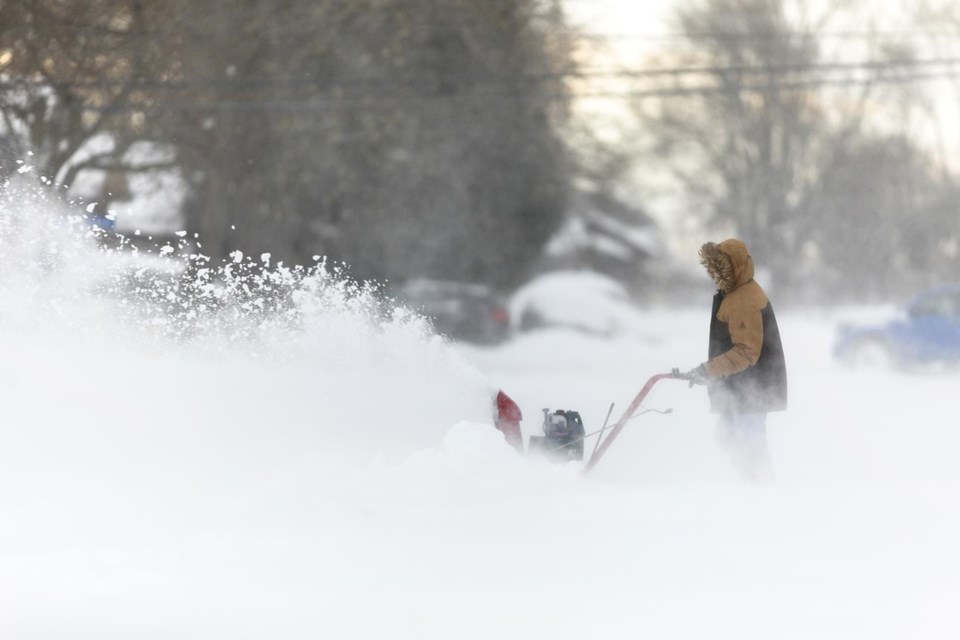Climate change could intensify lake-effect storms like the one that dumped a record-setting amount of snow on some communities in southern Ontario this weekend, an Environment Canada meteorologist said Monday.
More than a metre of snow blanketed parts of the Bruce Peninsula as arctic air descended over the Great Lakes and picked up the warmth and moisture of the unfrozen waters in what's called a lake-effect snow event.
A key marker of a storm's intensity is the temperature difference between the lake and arctic air. If lakes stay warmer longer into the fall, the first big outbreak of arctic air could produce stronger snow squalls, said Geoff Coulson, a warning preparedness meteorologist with Environment Canada.
"That is certainly something that could be possible over the course of the coming decades with warmer summers and warmer falls, resulting in warmer lake temperatures," he said in an interview Monday.
"Certainly, I think it's these earlier season lake-effect events that could see some signature from climate change going forward."
The storm dumped around 120 centimetres on parts of the Bruce Peninsula in southwestern Ontario. On Sunday alone, about 53 centimetres of snow fell in Wiarton, breaking the area's single-day snowfall record that has stood since 1982.
Schools were open but buses in the area were cancelled Monday, as residents dug out of snowbanks taller than some students.
Ian Boddy, mayor of the nearby city of Owen Sound, said the storm stood out as one of the "big whoppers" to hit the area in recent memory.
He expected most streets to be cleared by the end of the day as snowplows worked through emergency routes and major thoroughfares, to secondary and back streets.
Boddy said by the time he finished shoveling his laneway Sunday, another three centimetres had fallen at the other end.
"It was really coming down," he said.
Owen Sound police said there were “only a few collisions” reported to police as a result of the storm, but officers responded to over two dozen storm-related calls for help.
In a statement, police said a 44-year-old woman needed medical attention after she was found in a snowbank suffering from hypothermia. Earlier Sunday, police said officers helped shovel the entryway of a man with a disability who had called them after he was unable to leave the house through the snowed-in front door.
Environment Canada warned Monday that the region, as well as hard-hit areas around Niagara and Kingston, could see wind gusting up to 80 kilometres an hour.
New York recorded even more snow in the weekend storm, as the U.S. National Weather Service reported nearly 200 centimetres just outside Buffalo by Saturday. President Joe Biden granted a request to send federal aid to help state and local officials help clean up the massive storm.
- With files from The Associated Press.
This report by The Canadian Press was first published Nov. 21, 2022
Jordan Omstead, The Canadian Press




